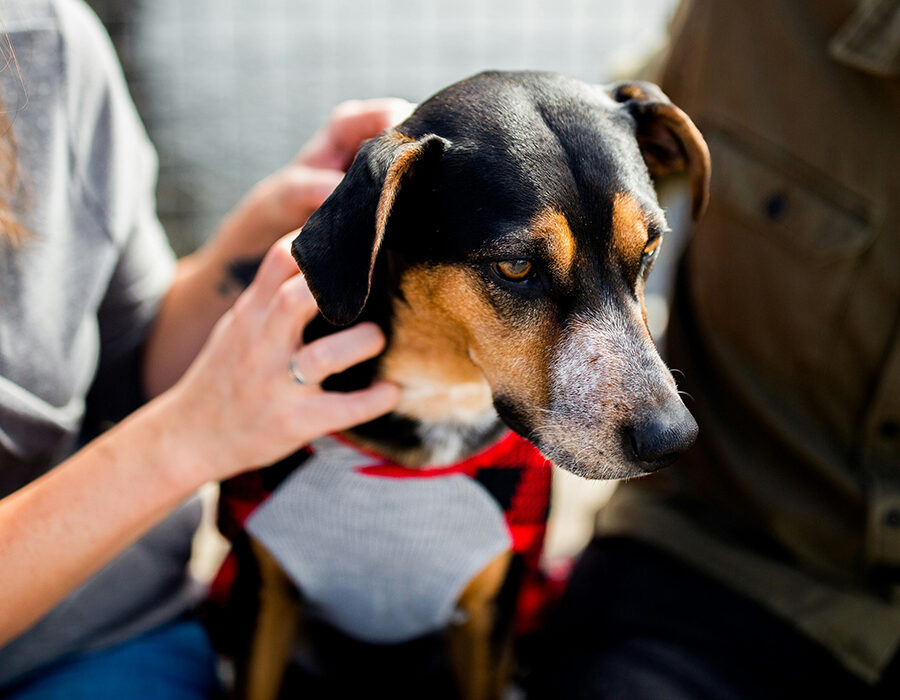As our beloved furry friends age, they deserve our utmost care and attention to ensure their golden years are comfortable and enjoyable. Just like humans, dogs go through various physical and mental changes as they get older. To provide the best quality of life for your senior dog, it’s essential to adapt their care routine to meet their evolving needs. In this blog, we’ll explore some valuable tips and insights on how to take care of an elderly dog.
Regular Veterinary Check-Ups
Just as with humans, preventive healthcare is paramount for senior dogs. Schedule regular check-ups with your veterinarian to monitor your dog’s health. These check-ups can catch potential issues early, ensuring prompt treatment and a higher quality of life.
Balanced Diet
Diet plays a crucial role in your senior dog’s health. Consult with your vet to determine the best diet for your dog’s age, breed, and any specific health concerns. Senior dog food often contains nutrients tailored to their needs, including joint support and easier-to-digest ingredients.
Maintain a Healthy Weight
Obesity can exacerbate health problems in older dogs. Keep a close eye on your dog’s weight, and if necessary, adjust their diet and exercise routine accordingly. Maintaining a healthy weight can alleviate strain on their joints and organs.
Adequate Exercise
While senior dogs may not be as energetic as their younger counterparts, regular exercise is still essential. Adjust the intensity and duration of walks or playtime to match their energy levels and physical condition. Low-impact exercises like swimming can be gentle on aging joints.
Also try to manage your expectations when it comes to their capabilities. Don’t try to make your older dog go on those extended hikes you used to be able to do together. A good tip is to keep your walks short but repetitive if able. For example, instead of one 30 minute walk a day, three 10 minute walks spaced out throughout the day is much better.
Joint Care
Arthritis and joint pain are common in elderly dogs. Provide joint supplements, as recommended by your vet, and consider providing soft bedding to alleviate pressure on their joints. Additionally, ramps or steps can help them access higher surfaces more comfortably.
Dental Care
Oral health is often overlooked but critical in senior dogs. Regularly brush their teeth and provide dental chews or toys to help prevent dental issues that can lead to pain and infection.
Mental Stimulation
Mental health is as important as physical health for senior dogs. Engage their minds with puzzle toys, interactive games, and new experiences. This can help prevent cognitive decline and keep them mentally sharp.
Adapt the Environment
Make necessary modifications to your home to accommodate your aging dog. Many modern style flooring types can be quite slippery and treacherous for dogs which can result in falls. Non-slip rugs or mats can provide stability on slippery floors, and ramps can assist with navigating stairs.
Be Mindful of the Weather
Extreme temperatures can be tough on older dogs. Ensure they are comfortable in hot weather with access to shade and water, and keep them warm in colder months with cozy bedding and shelter.
Chiropractic Care
Last, but definitely not the least, consider adding chiropractic care to your dog’s wellness plans. One of the most common reasons dogs are euthanized is mobility problems. If you can maintain your dog’s ability to move freely and keep them comfortable you can extend the time until it becomes necessary to say goodbye.
Conclusion
Caring for an elderly dog can be a rewarding experience as you provide them with a comfortable and loving environment in their later years. By following these tips, consulting your veterinarian regularly, getting regular chiropractic care and being attentive to your dog’s changing needs, you can ensure that your senior canine companion enjoys a happy and healthy retirement.

